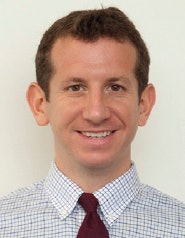
The price of a noncontrast head CT scan can vary more than fivefold in academic hospitals and more than tenfold in private practices across the U.S., according to a new study published online in the Journal of the American College of Radiology.
Such wide variation is surprising, researchers from Massachusetts General Hospital in Boston wrote, especially because noncontrast head CT is a standard imaging exam, with minimal differences in quality between academic hospitals and private practice (JACR, April 1, 2015).
"Radiologists' recommendations for imaging exams have significant impact on patients, and we need to be aware of guidelines for additional imaging," study co-author Dr. Anand Prabhakar told AuntMinnie.com.
More price transparency
As healthcare costs have increased, patients have had to assume a greater financial burden for their own care. In response, healthcare initiatives have begun to focus on curbing costs by making the prices of various procedures more transparent and available to consumers, in hopes that patients will be able to make more informed decisions about their healthcare and also that providers will lower their prices to remain competitive.
 Dr. Aaron Paul from Massachusetts General Hospital in Boston.
Dr. Aaron Paul from Massachusetts General Hospital in Boston.But it's not clear that price transparency is actually working, lead author Dr. Aaron Paul and colleagues wrote.
"There is as yet no evidence that increased price transparency in medical imaging will necessarily reduce costs," the group wrote.
For the study, Paul and colleagues included 18 academic hospitals identified by the 2013-2014 U.S. News & World Report's Best Hospitals rankings and 14 of the top 100 largest private radiology practices identified by Radiology Business Journal. Members of the research team then contacted these hospitals and practices by telephone between December 2013 and February 2014, posing as patients without health insurance who had received prescriptions for noncontrast head CT scans.
Each facility was contacted up to five times. The researchers asked each facility several questions:
- What the total cash price was for a noncontrast head CT
- Whether that price was negotiable
- Whether the institution matched prices
- How long it would take for the exam to be scheduled
- Whether the caller needed to be seen by a doctor within his or her healthcare system before being scheduled
- Whether a fee was charged for a CD copy of the exam
Of the facilities included in the study, 14 academic hospitals (78%) and 11 private practices (79%) were able to provide prices for the exam. Prices were as follows:
| CT scan price variation, private practices vs. academic hospitals | ||
| Private practices | Academic hospitals | |
| Lowest price | $211 | $391.62 |
| Highest price | $2,200 | $2,015 |
| Average price | $681.60 ± $563.58 | $1,390.12 ± $686.13 |
For all the academic hospitals and private practices, the price of the exam was not negotiable, and the facility would not match lower prices, although nine of the academic hospitals and seven of the private practices offered self-pay discounts. Four academic hospitals and six private practices told the caller that the exam could be scheduled within one week; the remaining facilities were unsure. None of the facilities required the patient to see a doctor before scheduling. Only three facilities, all academic hospitals, charged additional fees for a CD copy of the exam. These fees ranged from $15 to $30.
Possible but not easy
Although pricing information was available, obtaining it was difficult and time-consuming, Paul's team wrote: Multiple phone calls were often required, including conversations with different staff members, and four private practices would disclose pricing information only after the specific current procedural terminology (CPT) code for a noncontrast head CT was provided by the caller -- a challenging request for a patient.
 Dr. Anand Prabhakar from Massachusetts General Hospital in Boston.
Dr. Anand Prabhakar from Massachusetts General Hospital in Boston."You've got to be persistent to get this information," Prabhakar told AuntMinnie.com. "There was some frustration and difficulty, and, particularly, a layperson is going to have a hard time finding the correct CPT code."
And even if price information is available, it may not be the best way to assess value, according to Prabhakar. Patients can save money on imaging if they actively comparison shop, but it's important to remember that price isn't everything.
"Quality isn't factored into these prices, and that's the danger of price transparency," he said. "It might be better to pay more for a head CT that is interpreted by a subspecialist, for example, and that's the kind of thing patients need to take into account."
In any case, it's up to radiologists to continue to become aware of imaging costs -- and pass that knowledge on to their patients, Paul told AuntMinnie.com.
"Calls for greater price transparency from patients and state governments grow louder with each passing year, and it's important for radiologists to understand that the healthcare environment in which we work has changed," he said. "We need recognize the importance of providing patients with accurate and accessible pricing information so they can make informed decisions about their healthcare."





















